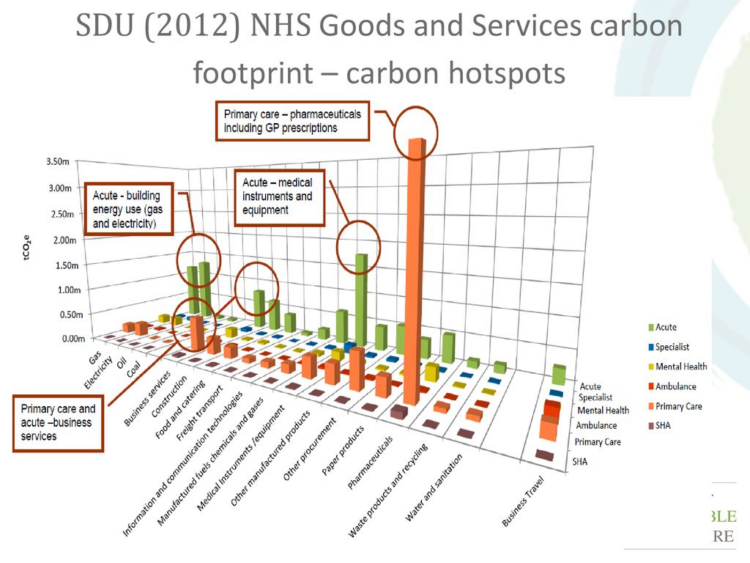Climate Change and Health
The Climate and Ecological Crisis is a Health Crisis. Planetary health underpins all the social and environmental determinants of health. Healthcare is both affected by the climate emergency and contributes to exacerbating it. The Lancet states the response to climate change is “the greatest global health opportunity of the 21st century.”
How do we make the case for action on the climate and ecological crisis?
This Climate & Health Narrative Resource presents a clearly arugued, positive and engaging narrative that health professionals can use to make the case for for climate action. You can also check out the Lancet’s Climate Countdown which collates health and climate information annually. This BMJ article outlines what climate action means for healthcare.
Action on the climate and ecological emergency:
- has huge benefits for patient health now e.g., increasing active travel and improvement in air quality
- will be beneficial for populations e.g., increased physical activity, sustainable diets, improved access to nature and green prescribing will all have mental and physical health benefits
- reduces health inequalities – the climate crisis disproportionately affects the poorest in society
- protects future health – e.g., through mitigating both the physical health and the mental health effects of extreme weather events, heat stress, vector-borne disease, food shortage, air and water quality
- can improve workload and costs through through improved patient health, reduced prescribing/procurement costs, reduced energy use
What has the NHS got to do with the climate and ecological crisis?
The NHS contributes 4-5% of the UK’s carbon emissions. In October 2020, the NHS became the world’s first health service to commit to reaching carbon net zero, in response to the profound and growing threat to health posed by climate change. The “Delivering a Net Zero Health Service” report sets out a clear ambition and two evidence-based targets.
Primary care carbon footprint
Prescribing is by far the largest carbon footprint in primary care. See more in the prescribing section.

